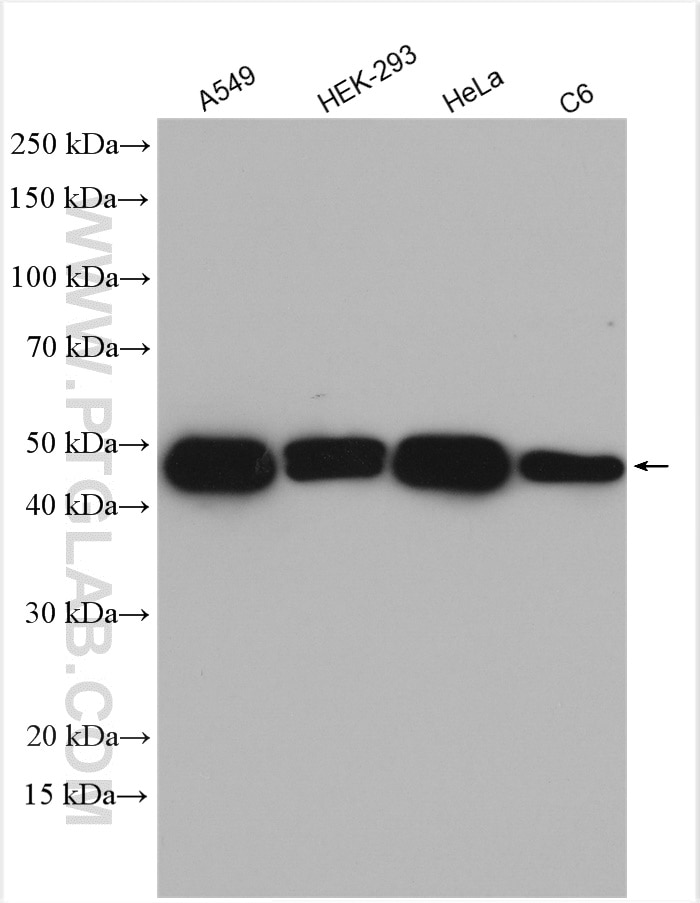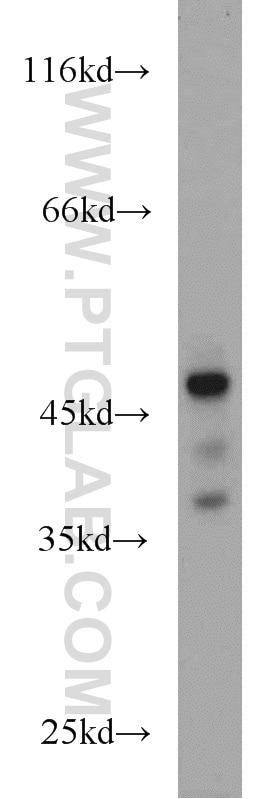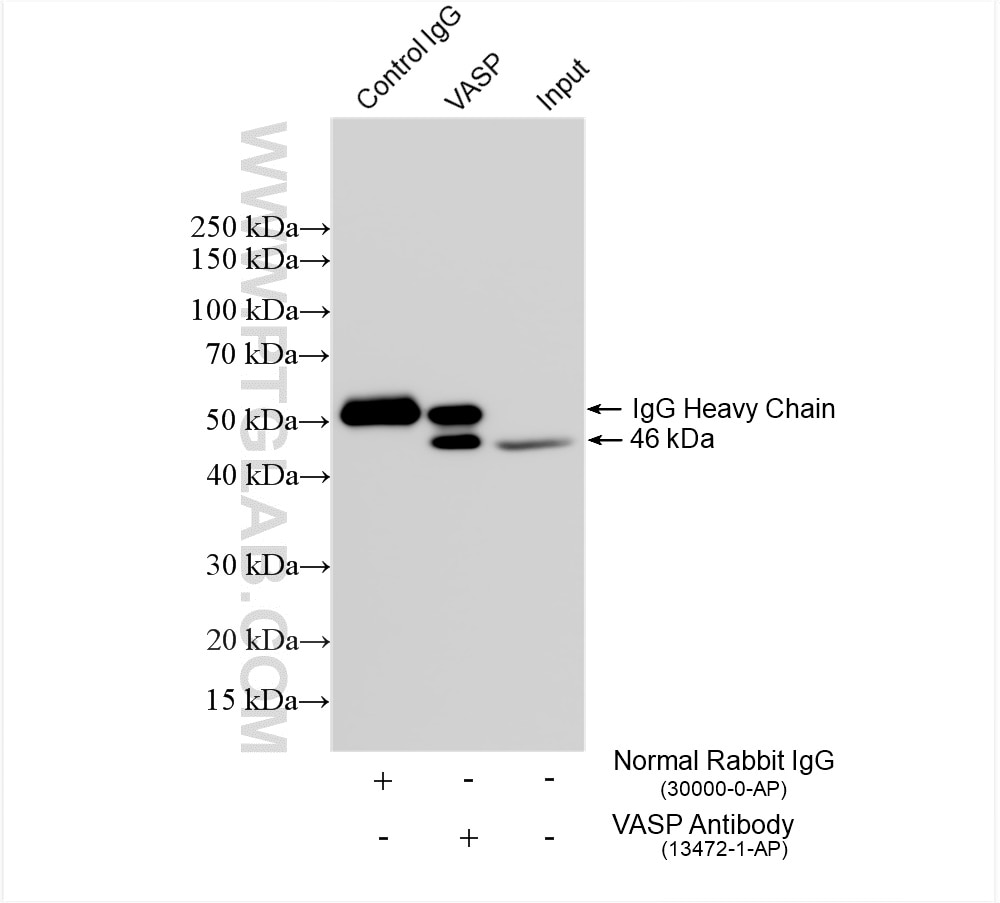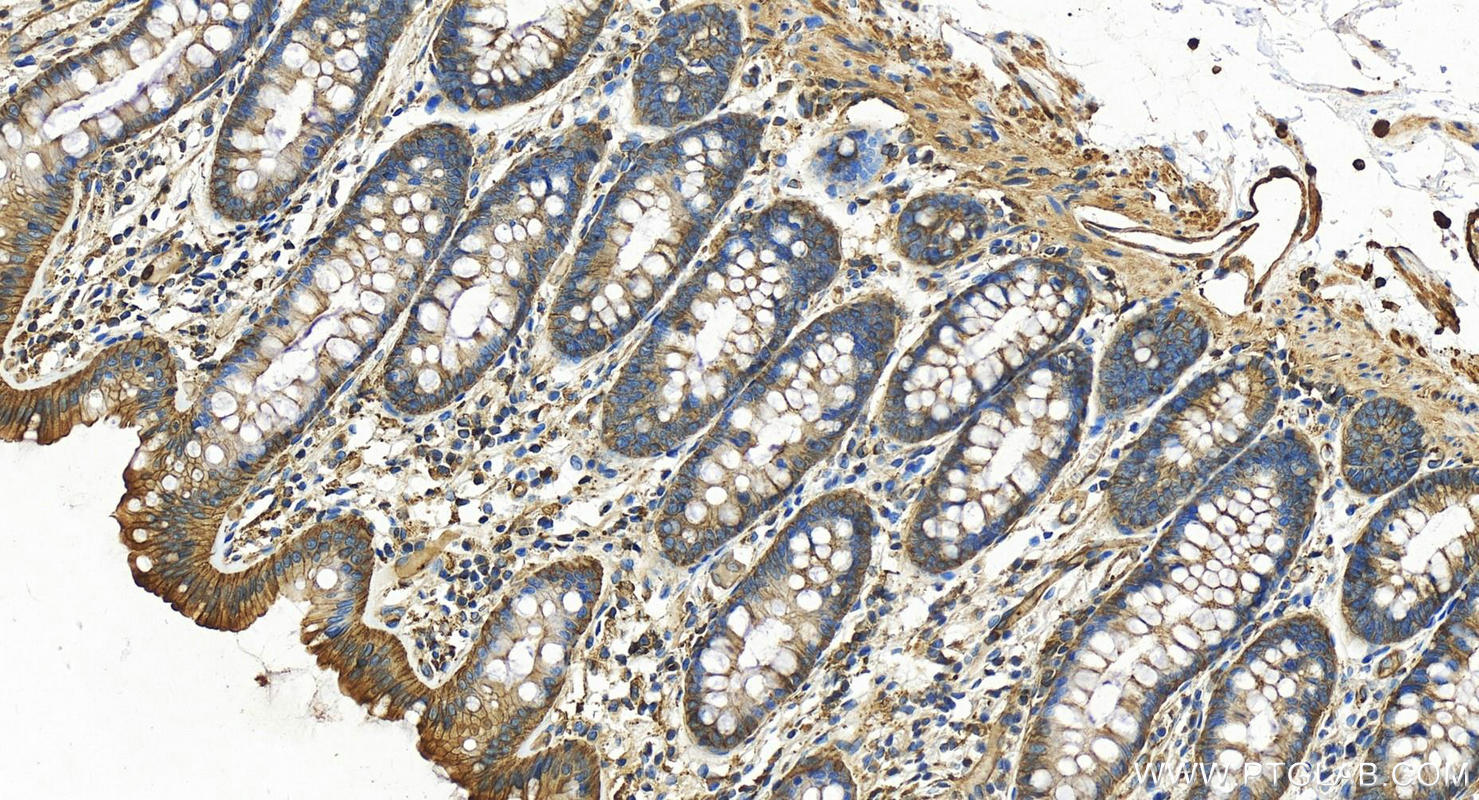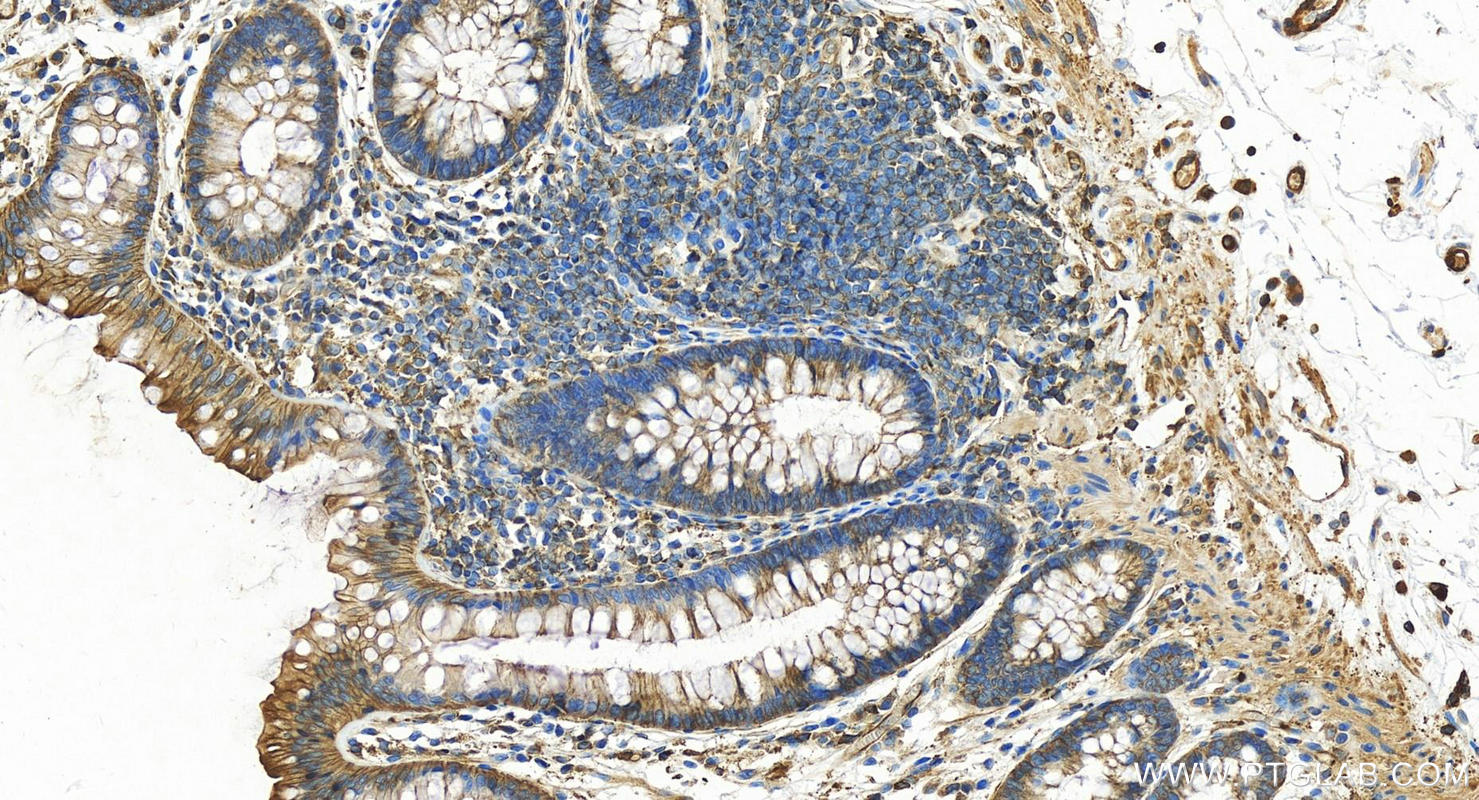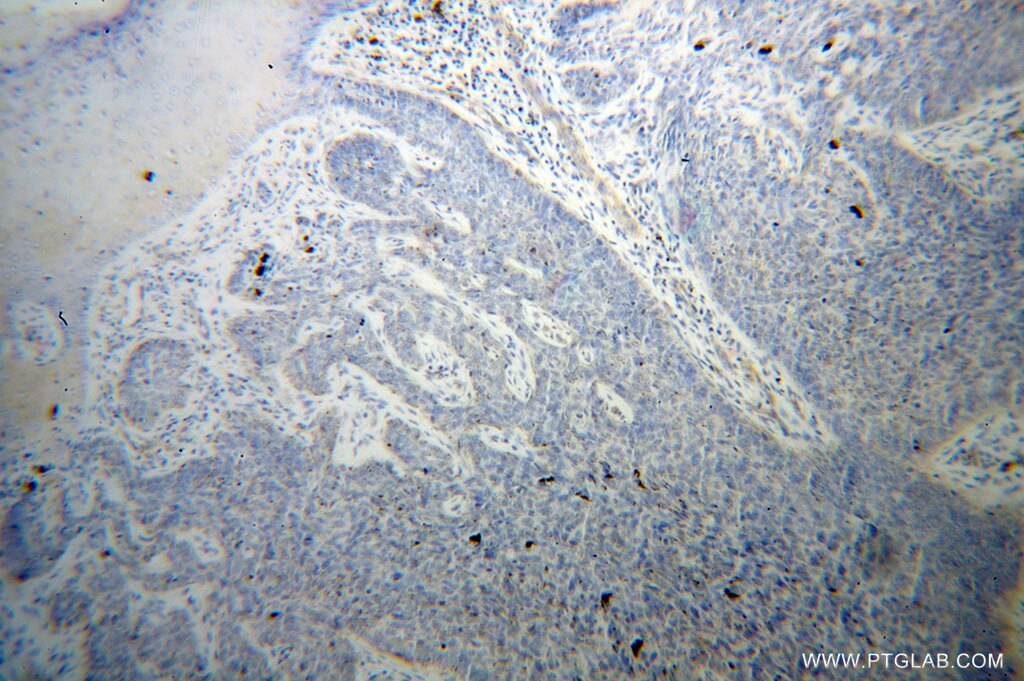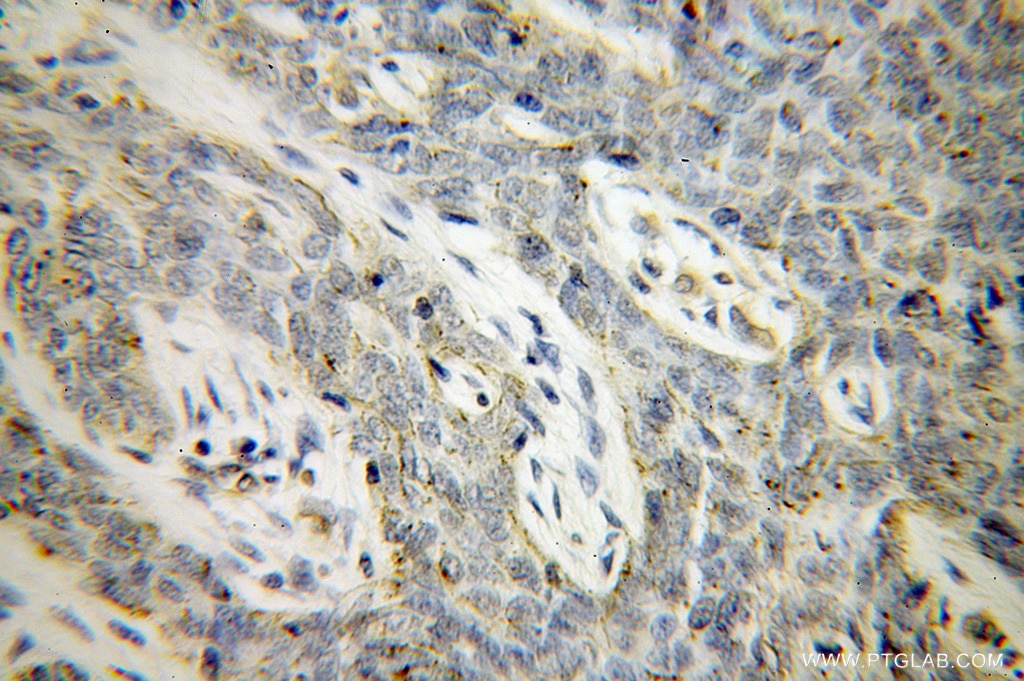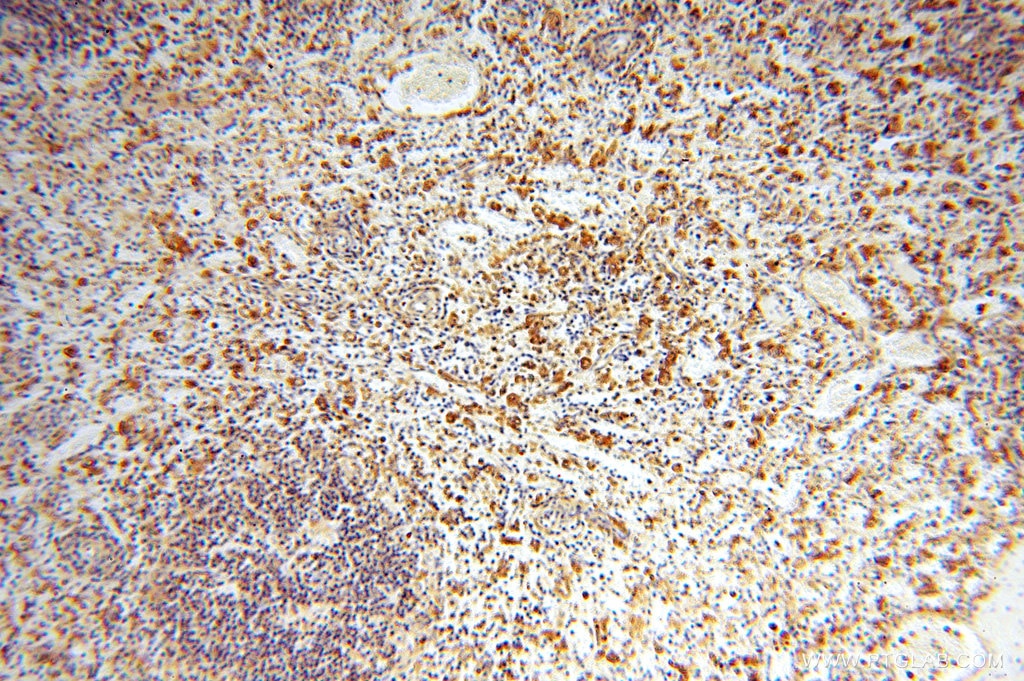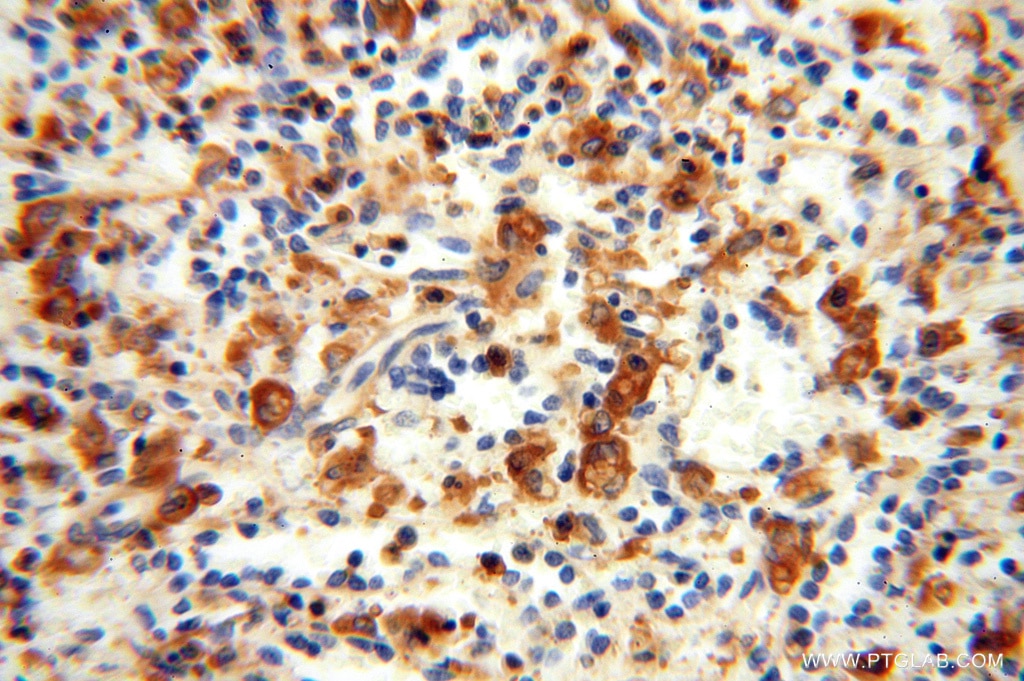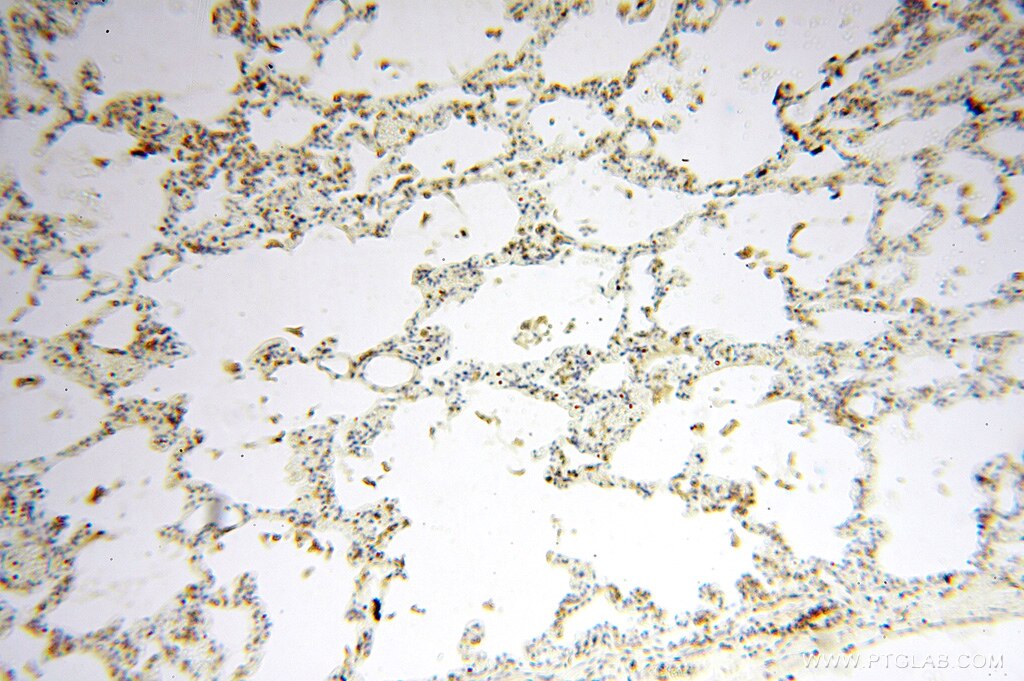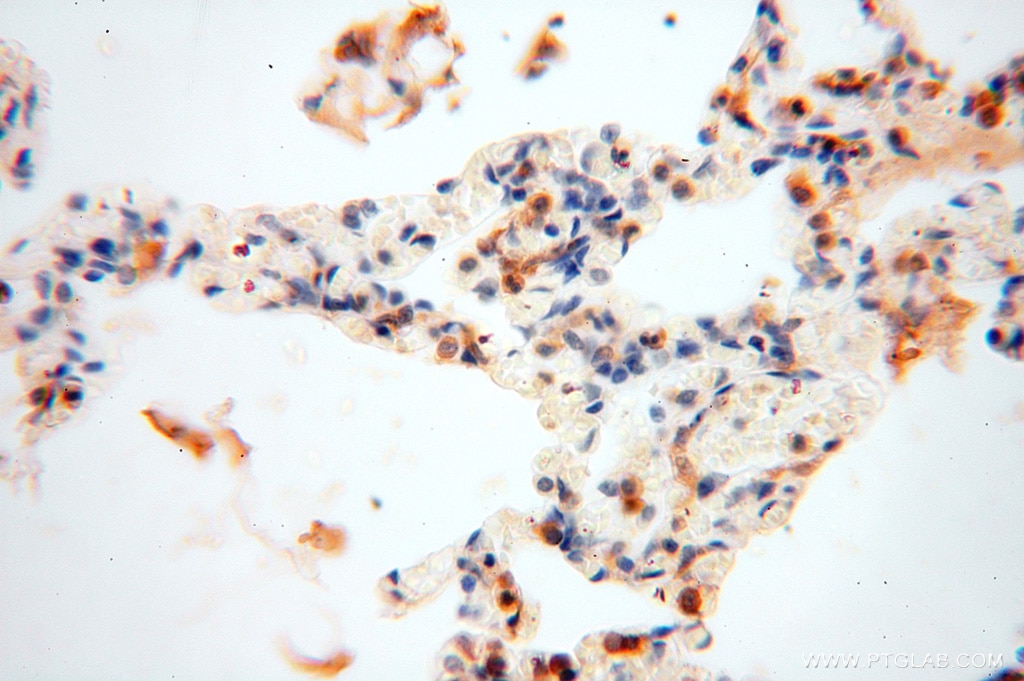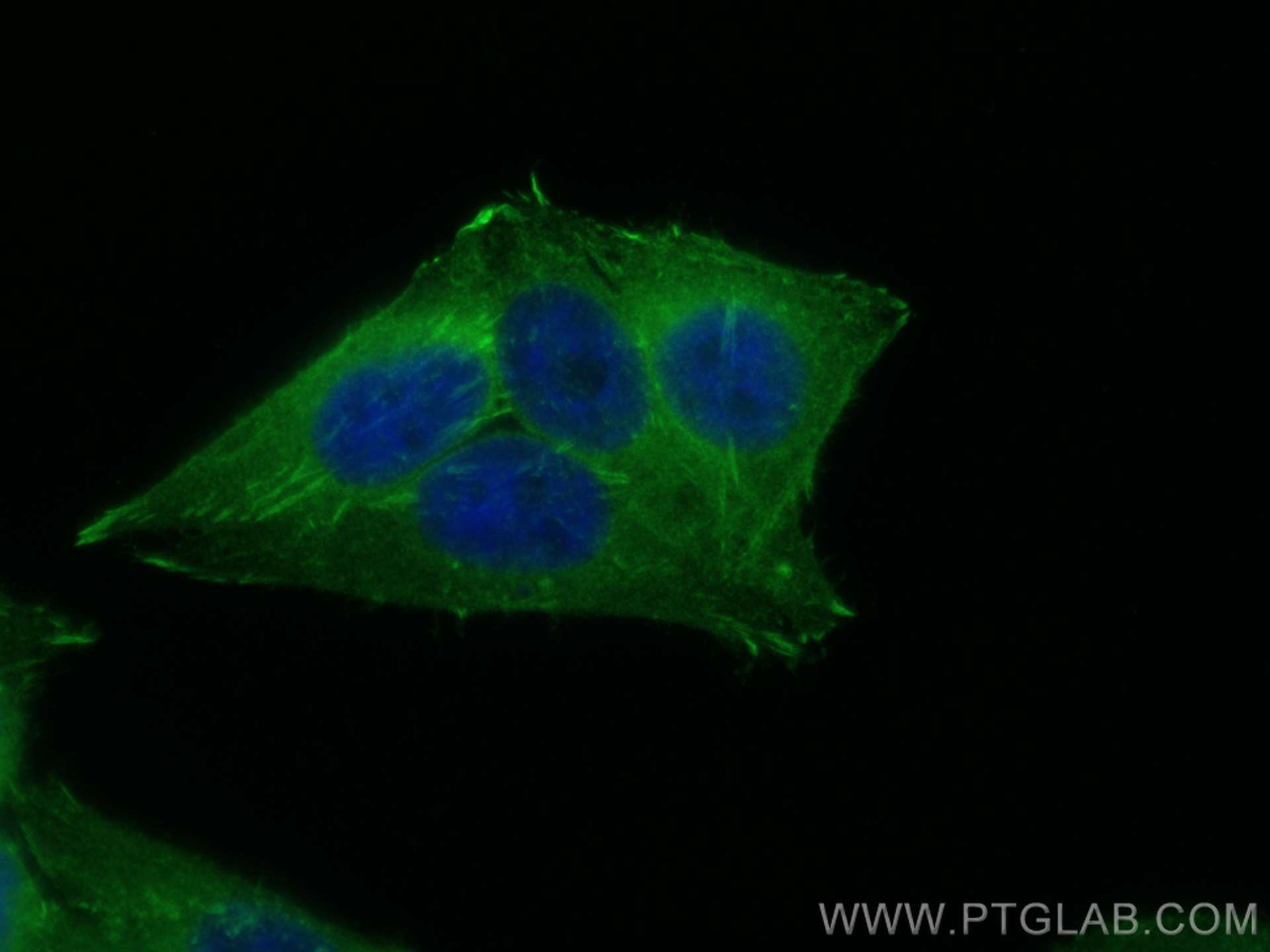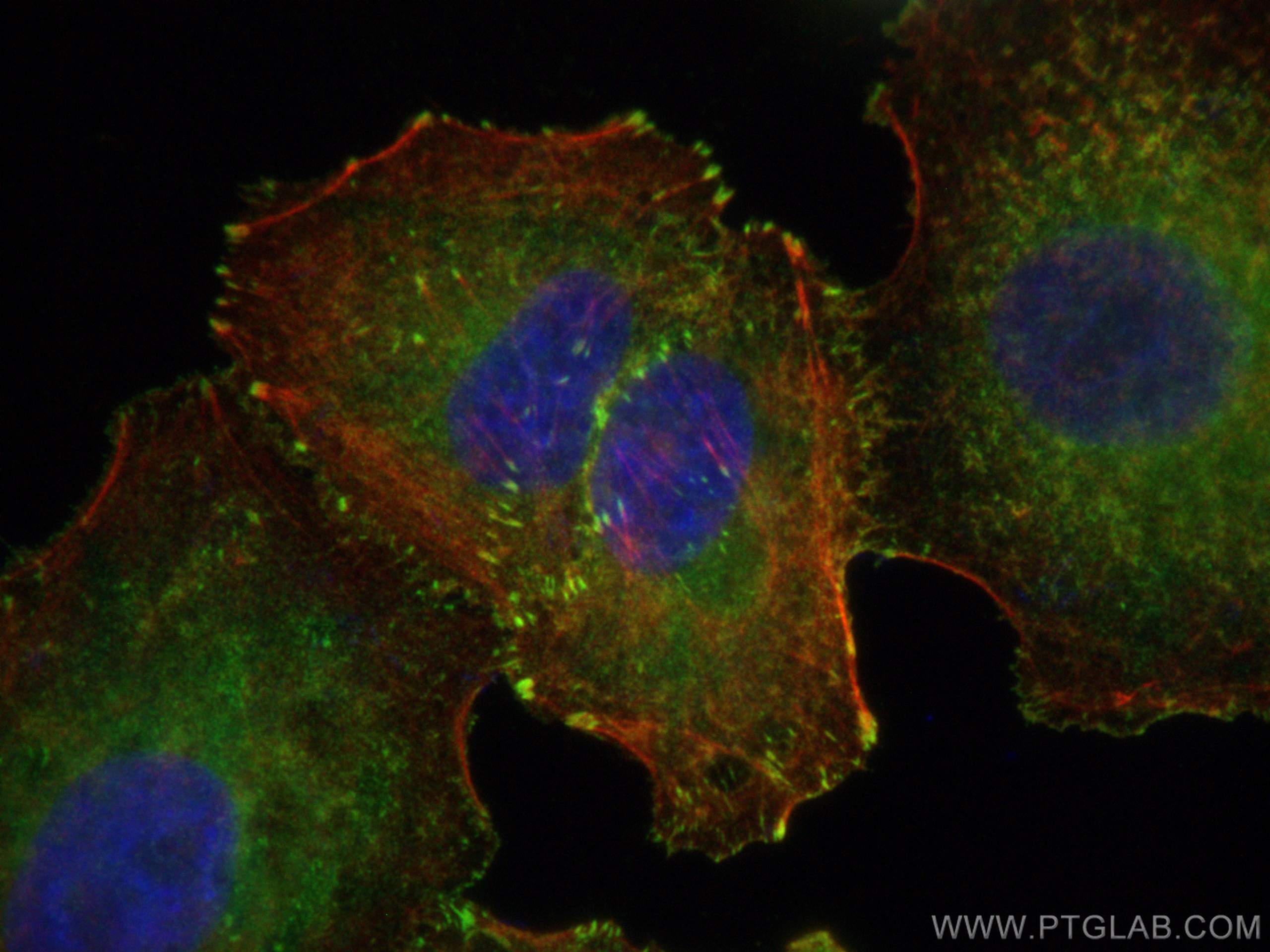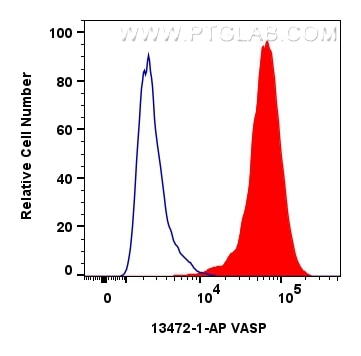- Phare
- Validé par KD/KO
Anticorps Polyclonal de lapin anti-VASP
VASP Polyclonal Antibody for WB, IHC, IF/ICC, FC (Intra), IP, ELISA
Hôte / Isotype
Lapin / IgG
Réactivité testée
Humain, rat, souris
Applications
WB, IHC, IF/ICC, FC (Intra), IP, ELISA
Conjugaison
Non conjugué
N° de cat : 13472-1-AP
Synonymes
Galerie de données de validation
Applications testées
| Résultats positifs en WB | cellules A549, cellules C6, cellules HEK-293, cellules HeLa, tissu splénique de souris |
| Résultats positifs en IP | cellules HEK-293, |
| Résultats positifs en IHC | human normal colon, tissu de cancer de la peau humain, tissu pulmonaire humain, tissu splénique humain il est suggéré de démasquer l'antigène avec un tampon de TE buffer pH 9.0; (*) À défaut, 'le démasquage de l'antigène peut être 'effectué avec un tampon citrate pH 6,0. |
| Résultats positifs en IF/ICC | cellules HepG2, cellules A549 |
| Résultats positifs en FC (Intra) | cellules HepG2 |
Dilution recommandée
| Application | Dilution |
|---|---|
| Western Blot (WB) | WB : 1:1000-1:6000 |
| Immunoprécipitation (IP) | IP : 0.5-4.0 ug for 1.0-3.0 mg of total protein lysate |
| Immunohistochimie (IHC) | IHC : 1:300-1:1200 |
| Immunofluorescence (IF)/ICC | IF/ICC : 1:50-1:500 |
| Flow Cytometry (FC) (INTRA) | FC (INTRA) : 0.40 ug per 10^6 cells in a 100 µl suspension |
| It is recommended that this reagent should be titrated in each testing system to obtain optimal results. | |
| Sample-dependent, check data in validation data gallery | |
Applications publiées
| KD/KO | See 4 publications below |
| WB | See 10 publications below |
| IHC | See 2 publications below |
| IF | See 6 publications below |
Informations sur le produit
13472-1-AP cible VASP dans les applications de WB, IHC, IF/ICC, FC (Intra), IP, ELISA et montre une réactivité avec des échantillons Humain, rat, souris
| Réactivité | Humain, rat, souris |
| Réactivité citée | Humain, souris |
| Hôte / Isotype | Lapin / IgG |
| Clonalité | Polyclonal |
| Type | Anticorps |
| Immunogène | VASP Protéine recombinante Ag4266 |
| Nom complet | vasodilator-stimulated phosphoprotein |
| Masse moléculaire calculée | 380 aa, 40 kDa |
| Poids moléculaire observé | 46 kDa, 50 kDa |
| Numéro d’acquisition GenBank | BC038224 |
| Symbole du gène | VASP |
| Identification du gène (NCBI) | 7408 |
| Conjugaison | Non conjugué |
| Forme | Liquide |
| Méthode de purification | Purification par affinité contre l'antigène |
| Tampon de stockage | PBS with 0.02% sodium azide and 50% glycerol |
| Conditions de stockage | Stocker à -20°C. Stable pendant un an après l'expédition. L'aliquotage n'est pas nécessaire pour le stockage à -20oC Les 20ul contiennent 0,1% de BSA. |
Informations générales
VASP belongs to the Ena/VASP family. Ena/VASP proteins are actin-associated proteins involved in a range of processes dependent on cytoskeleton remodeling and cell polarity such as axon guidance, lamellipodial and filopodial dynamics, platelet activation and cell migration. VASP promotes actin filament elongation. It protects the barbed end of growing actin filaments against capping and increases the rate of actin polymerization in the presence of capping protein. VASP stimulates actin filament elongation by promoting the transfer of profilin-bound actin monomers onto the barbed end of growing actin filaments. VASP plays a role in actin-based mobility of Listeria monocytogenes in host cells. Regulates actin dynamics in platelets and plays an important role in regulating platelet aggregation. Human platelet activation is inhibited by agents such as prostaglandins and NO donors, which elevate cAMP or cGMP levels. VASP is phosphorylated in human platelets in response to both cAMP- and cGMP-elevating agents, and its phosphorylation correlates with platelet inhibition. VASP is located about 92 kb distal to ERCC1 (126380) and about 300 kb proximal to the myotonic dystrophy protein kinase gene. The antibody is specific to VASP.
Protocole
| Product Specific Protocols | |
|---|---|
| WB protocol for VASP antibody 13472-1-AP | Download protocol |
| IHC protocol for VASP antibody 13472-1-AP | Download protocol |
| IF protocol for VASP antibody 13472-1-AP | Download protocol |
| IP protocol for VASP antibody 13472-1-AP | Download protocol |
| Standard Protocols | |
|---|---|
| Click here to view our Standard Protocols |
Publications
| Species | Application | Title |
|---|---|---|
Nat Commun Cortical dynamics during cell motility are regulated by CRL3(KLHL21) E3 ubiquitin ligase. | ||
PLoS Biol Nucleotide de novo synthesis increases breast cancer stemness and metastasis via cGMP-PKG-MAPK signaling pathway. | ||
Oncogene The Wnt/β-catenin/VASP positive feedback loop drives cell proliferation and migration in breast cancer.
| ||
Front Oncol High-Risk HPV16 E6 Activates the cGMP/PKG Pathway Through Glycosyltransferase ST6GAL1 in Cervical Cancer Cells. | ||
Oncol Rep TNF‑α inhibits xenograft tumor formation by A549 lung cancer cells in nude mice via the HIF‑1α/VASP signaling pathway.
| ||
Acta Histochem Exploring the oncogenic role of RGS19 in bladder cancer progression and prognosis |
